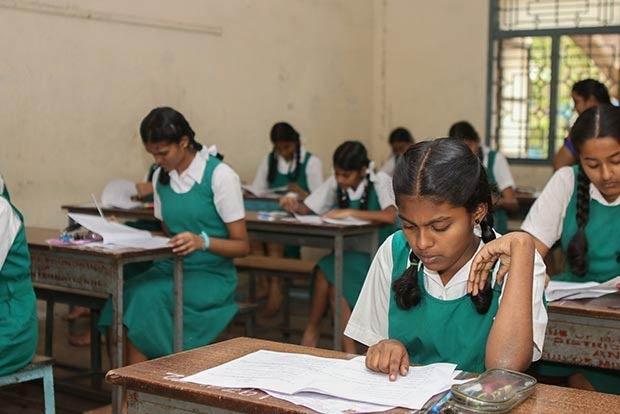Tamil Nadu: Public Exams for Class V, VIII Withdrawn by Govt

Representational image.
The students of class V and VIII can now breathe easy as the Education Department has withdrawn the public examinations on Tuesday. The education minister in the government of Tamil Nadu also announced the continuation of the previous evaluation method for these students. The announcement of the public examinations was perceived as the first step towards the implementation of the Draft National Education Policy (DNEP) and also, violation of the Right to Education (RTE) Act.
The withdrawal of examination is welcomed by the students, parents, academicians, teachers’ organisations and political parties.
WITHDRAWAL OF EXAM WELCOMED
The government had faced ire of several organisations opposing the conduct of public exams, announced in October 2019. The government had tried to save face by announcing different measures—right from promising no retention policy and the review of the examination during the next academic year.
Prince Gajendra Babu, academician and educationist, while speaking to NewsClick said, “We wholeheartedly welcome the withdrawal of government order 164 which mandates conduct of public exams for the students of class V and VIII. This is a big relief as writing examinations at such a young age would have stressed the students and would have resulted in high dropout rate in the state. Now it’s time for the state government to strengthen and improve the education and valuation system to instil confidence among the student community.”
AGAINST THE RECOMMENDATIONS OF YASHPAL COMMITTEE
The earlier evaluation system was divided into two segments namely formative assessment and summative assessment, for 40 and 60 marks respectively. The scheme was introduced after the implementation of the RTE Act and the Activity Based Learning (ABL) in 2008. The ABL was introduced with the aim of increasing creativity among the students and it yielded the desired result, say academicians. The sudden announcement of the public examinations came as a rude surprise as the students of the state board are writing three public exams in class X, XI and XII.
Commenting on the announcement of the examinations, Prince said, “The Prof Yashpal committee concluded that the board examinations never helped the students to improve their potential and there was no research to justify the conduct of examinations. It would only create stress and push the children out of school education. The committee also recommended learning without burden.”
NO RETENTION POLICY TO CONTINUE
The state is one among the states to follow the policy of no retention of the students up to class VII in spite of the amendment in the RTE Act during 2019. The amendment to the Section 16 of RTE is about the policy of detaining students. Prince added, “In a meeting held on October 2016, some states wanted to detain the students and some didn’t. Then, they resolved to leave the issue to the concerned states and Tamil Nadu chose not to detain the students up to class VIII to ensure the socially and economically get elementary education. The section 16(i) of the amended Act talks about the conduct of regular exams at the end of class V and VIII. The misinterpretation of the regular exams by the executives in Tamil Nadu has resulted in the confusion and it is good that they have withdrawn those exams.”
With the present evaluation system of formative and summative assessments, the state still ranks among the top in terms of ability of the students to read and write, particularly in the government schools. The need of the hour is to strengthen the existing system for better and not to let it collapse by burdening the students.
Get the latest reports & analysis with people's perspective on Protests, movements & deep analytical videos, discussions of the current affairs in your Telegram app. Subscribe to NewsClick's Telegram channel & get Real-Time updates on stories, as they get published on our website.
























